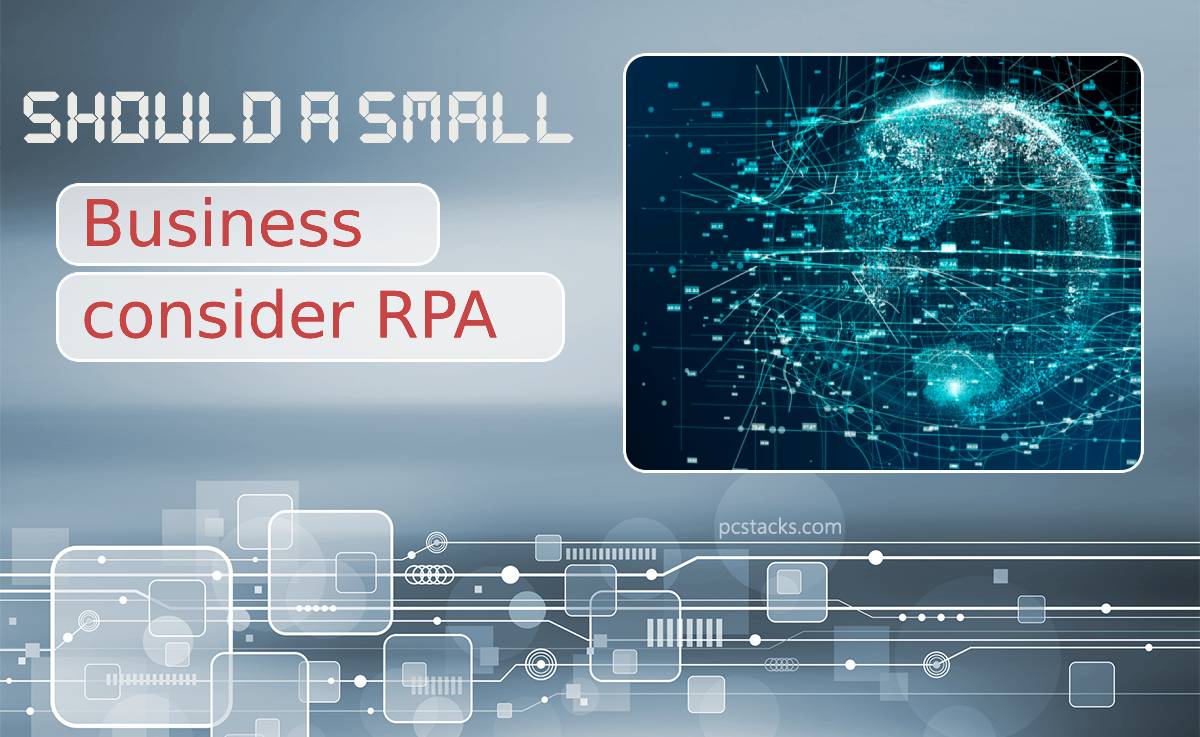You’ve probably heard marketers already use terms like “artificial intelligence,” “robotic process automation,” “machine learning,” and “cognitive automation.” Similar to their large-enterprise counterparts, small and midsized businesses face significant obstacles and goals. A robotic process automation solution can benefit businesses of all sizes, regardless of industry or market. Expanding companies may benefit from the development, enhancement, and streamlining of departmental procedures made possible by these tools. RPA solutions can facilitate an organization’s backend operations, automate workflows, and enhance employee support and customer interactions, making them particularly useful for expanding SMBs.
The short answer to the question of whether or not RPA is appropriate for small businesses is “yes.” A list of the top advantages a small business can enjoy was compiled by a group of RPA tech specialists from Connections Consult, one of the leading European groups of innovative technology companies.
Table of Contents
Automate your current systems

Every business has time-consuming, repetitive, yet essential tasks. Typically, these are administrative tasks like processing invoices, reporting inventory, providing customer service, and managing contacts are all necessary for the operation of the business. In order for the business to run smoothly, each of these tasks must be completed at all times. However, they frequently necessitate manpower that could be used for higher-value tasks, marketing, or actual business management.
The good news is you can automate and accelerate these repetitive tasks by a factor of up to 10 by building your own software bots and using the right robotic process automation solutions.
Keep better data backups
While downtime can be disastrous for SMBs, it can be a problem for any business. Security Boulevard says that even one hour of downtime can cost up to $50,000 for small businesses, and 37% of those surveyed said they lost customers as a result. By automating backup and recovery, RPA solutions can reduce potential downtime. If downtime is detected, critical data can be recovered by regularly copying it to cloud services or physical media using robot processes that can be programmed to do so.
Small businesses can benefit from this strategy in two ways: overall downtime is kept to a minimum, and potential errors resulting from incorrect data collection or application are virtually eliminated.
Increase efficiency

Little associations can acquire a great deal by executing RPA and disposing of wasteful working environment rehearses. You can monitor information flows and approve where necessary by analyzing and modeling existing processes. RPA installations typically don’t require any changes to your existing business systems when using a service model.
By automatically processing transactions and producing cash flow statements each day or every week to ensure that the business is always aware of its current financial position, RPA assists small business owners with capital management. In conclusion, one of the easiest ways for many small businesses to start going digital is to switch to RPA. Are you looking for more information on RPA solutions and processes? Don’t hesitate to contact us!




